Text

Sorry
1 note
·
View note
Text
DANTE AT DASHCON PHOTO DUMP!
Yesterday, Dante discovered the secret 10th layer of hell Virgilio would not let him see...
(Got to meet my mutual @il--salaino for the first time!)






127 notes
·
View notes
Text

Hamccolò and Wolf Cesare
1 note
·
View note
Text
Octavian boy and his uncle
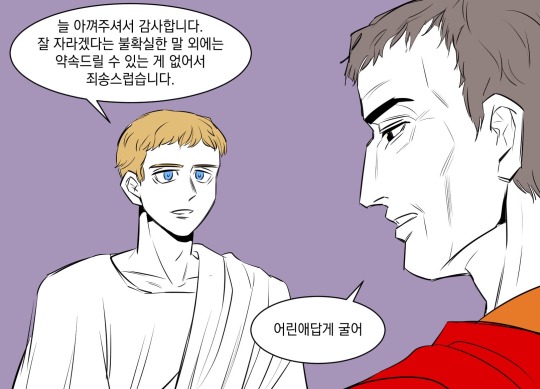
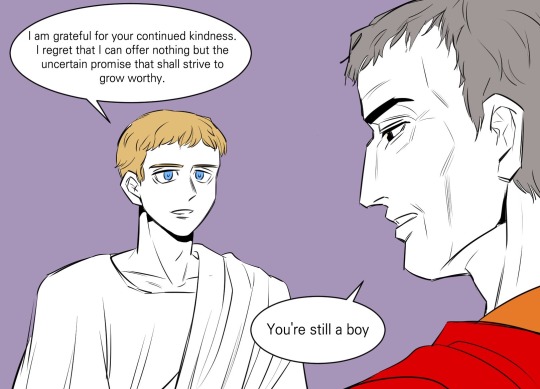
6 notes
·
View notes
Text

Gorgo, Queen of Sparta
7 notes
·
View notes
Text
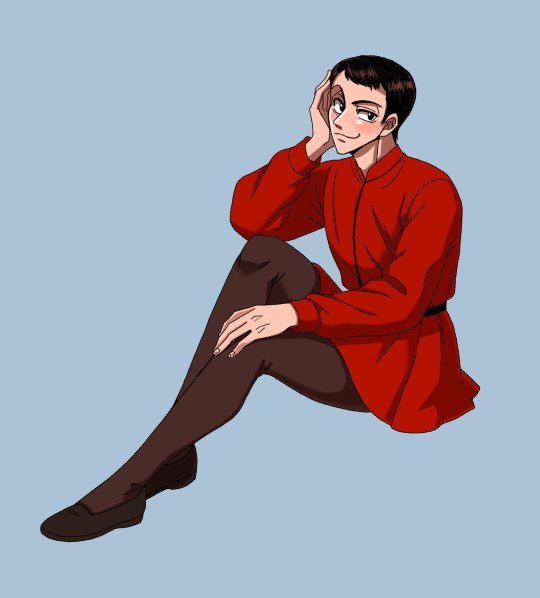
squirrel Machiavelli

7 notes
·
View notes
Text

Lycurgus - The legendary lawgiver of Sparta

Pericles - Greek statesman and general during the Golden Age of Athens

Themistocles vs Aristides - Political Rivals of Ancient Athens
#Plutarch’s Lives#history fanart#classical athens#sparta#ancient greece#Lycurgus#Pericles#themistocles#Aristides
23 notes
·
View notes
Text

Six historical figures, reimagined in my art style2
29 notes
·
View notes
Text

Six historical figures, reimagined in my art style
#napoleon bonaparte#napoleonic era#napoleonic wars#alexander i of russia#yejong#joseon#beethoven#dante alighieri#dante#arthur wellesley#1st Duke of Wellington
186 notes
·
View notes
Text
Il Sogno di Machiavelli
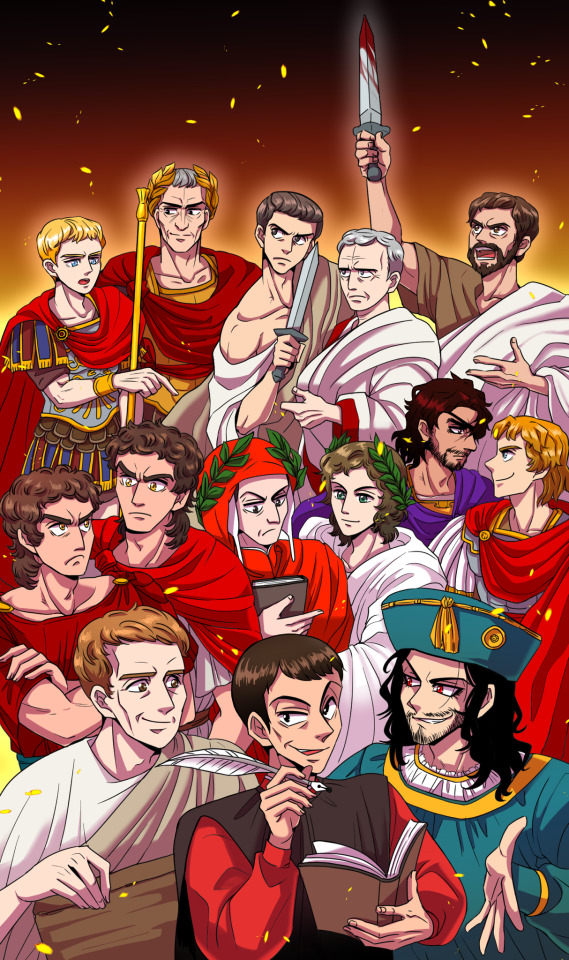
Machiavelli and his muses
Livy / Niccolò Machiavelli / Cesare Borgia

Remus / Romulus

Dante Alighieri / Virgil

Hannibal Barca / Scipio Africanus

Marcus Junius Brutus / Cicero / Lucius Junius Brutus

Augustus and Julius Caesar

#niccolo machiavelli#machiavelli fanart#Machiavelli#history fanart#Livy#Cesare#cesare borgia#romulus and remus#romulans#Remus#Regnum Romanum#Firenze#Dante#dante alighieri#Virgil#Hannibal#hannibal barca#scipio africanus#second punic war#brutus#cicero#res publica romana#julius caesar#Caesar#augustus#Imperium Romanum#ancient rome
128 notes
·
View notes
Text
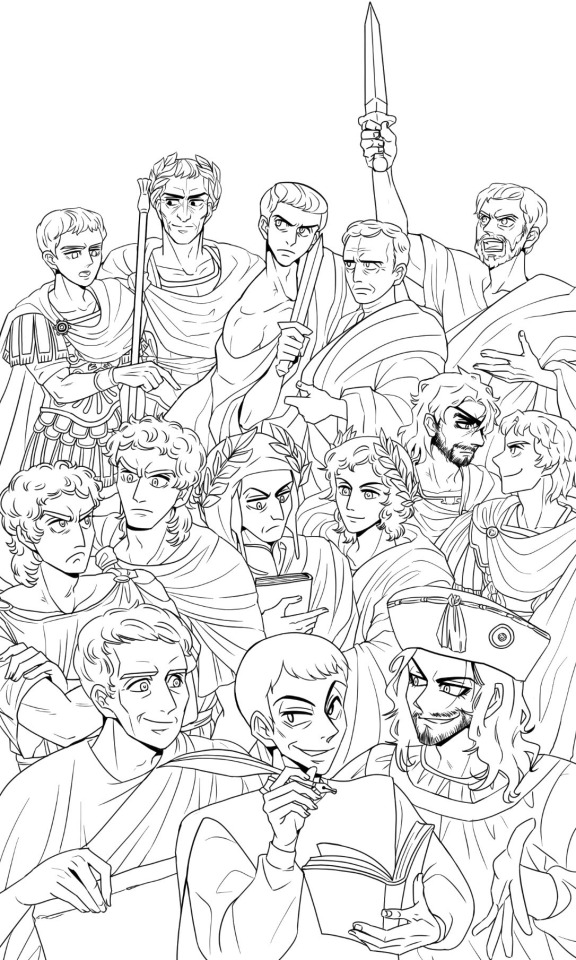
21. June. 1527. Machiavelli death
If, in the afterlife, he were to meet the very figures he longed to speak with in life…
(Top left to bottom right):
Augustus – Caesar – Marcus Brutus – Cicero – Lucius Brutus
Remus – Romulus – Dante – Virgil – Hannibal – Scipio Africanus
Livy – Machiavelli – Cesare Borgia
#niccolo machiavelli#Machiavelli#Livy#cesare borgia#Hannibal#scipio africanus#romulus and remus#Dante#Vergil#brutus#Cicero#julius caesar#augustus#history fanart
40 notes
·
View notes
Text
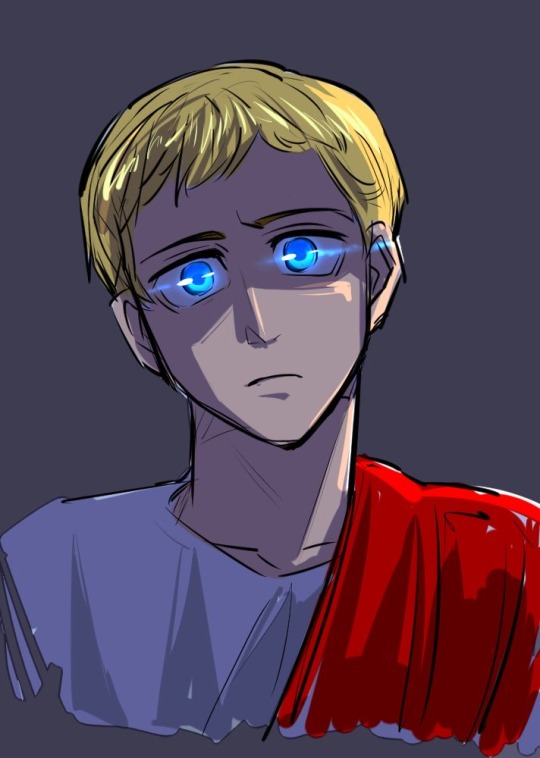
Augustus, as imagined from the Meroë Head
#octavian augustus#octavian#augustus#civ7#civ7fanart#civ#civfanart#roman empire#ancient rome#history fanart#digital art#drawing#illustration
29 notes
·
View notes
Photo
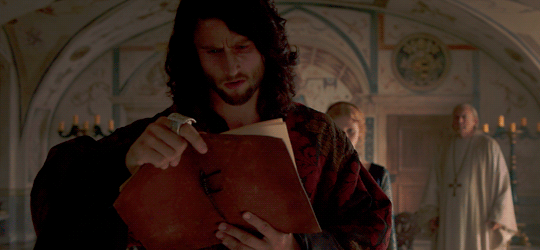
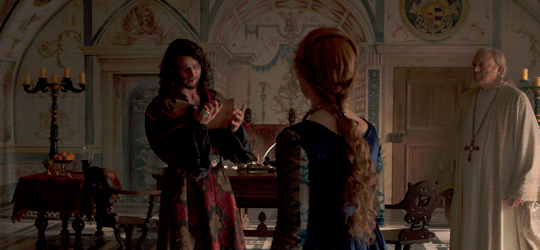
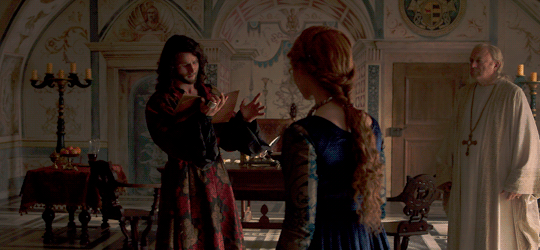
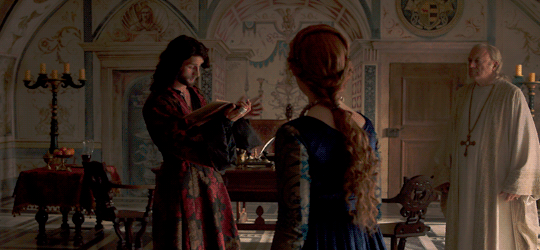
Origins of the Borgias Black Legend: The Savelli Letter:
“The expedient expropriation of the Colonna, the confiscation of Palombara and other possessions from the Savelli and their delivery to the Orsinis, the distribution of the spoils among the heirs of the fourth generation of the Borgias, provokes a desperate reaction from both families. Since they don’t dare an armed counterattack, they give birth to a demolishing libel, a true monument of the pamphleteer literature, a precedent sound of a weapon that will be vital in later centuries, political propaganda, disqualification at any price of the enemy, of the rival. A document that will become famous and that, together with others of the same fallacious origin, will be converted into reliable sources, in the supposed data with which the black legend of the Borgia is built.
We refer to a text that under the title of "Letter to Silvio Savelli, being a refugee in the court of Maximilian", appears in November 1501. […] The author would be a Neapolitan literate, Gerolamo Mancione, if some indications given by Agostino Nifo [1] and accepted by Ferrara are true [2].
The Pope [Alexander VI] wanted them to read Mancione’s pamphlet to him, as all the insulting anonymous writings were made to be read. At times he laughed with loud laughter from a satisfied, burly man; at other times he smiled from ear to ear with his sensual lips. He was convinced that no one could believe so many fantastic things, product of resentment and envy. But he was deeply mistaken. He should have responded point by point, dismantled inventions with facts, countered with all the detailed information at his disposal. By not doing so, the Borgias sinned with pride and arrogance; history punished them harshly.
According to some historians, it was commissioned by the Colonna family. In the pamphlet it carries the date of November 25, 1501, but there are comments on subsequent events, such as the departure of Lucrezia to Ferrara and even the conquests of Urbino and Camerino, which had just happened just a few days before. It is dated in Taranto but has been published in Germany. Cesare is outraged because the verbatim says of him: “His father spoils him because he has the same perverse character, his cruelty: it is difficult to say which of these two beings is more execrable.” Alexander comments to the ambassador of Ferrara, who will collect his words: “The duke is a good man but he does not know how to tolerate offenses. More than once I have told him that Rome is a free city and that everyone is its own master of writing whatever they want.” Almost incredible, to tell the truth, so much liberality. Because the letter spares no insults nor accusations: “Of all the anti-Borgia requirements, it was the most violent and factious without any doubt, says Gervaso [3].
“So often announced by the Prophets, the time of the Antichrist has come,“ says the letter, “because there has never been a worse enemy of our faith, more declared adversary of God, more fierce destroyer of the religion of Christ … Oh, terrible times!”
Allegedly sent from the “royal camp of Taranto”, headquarters of the troops of Gonzalo Fernández de Córdoba, the fiery speech was destined for the “Magnificent Don Silvio Savelli”, exiled from Rome and refugee in the court of Emperor Maximilian. The moment chosen to spread this libel in the courts of Europe was not at all accidental: the announcement that the marriage transactions between the Vatican and Ferrara had been concluded and it provoked the fury of Maximilian of Germany. The father, “infamous beast, whose perfidy extends over the human race… Rodrigo Borgia, the greatest evil of all ages; the son, “a fratricide who, as a cardinal, has become a murderer … On his orders, one could be killed, thrown into the Tiber, poisoned or ruined”; the daughter, “with whom [the Pope] has an infamous trade. To return the boat of St. Peter to the port, to eradicate from Rome “a plague generated for the destruction of Christianity.“ The letter of Taranto appeals to the strength of the emperor of Germany and all Christian princes and even to distant kings. ”
He strongly recommended his addressee to disseminate this writing, and to have it read “before the crowds gathered for Mass”: “Goodbye,” said the anonymous author. “Remember that you are one of ours and that you are Roman. Therefore, again, goodbye.,” The “letter of Taranto” was intercepted by Cesare’s spies and ended up reaching the eyes of the Pope. According to Burckard it was the Cardinal of Modena, Giovanni Battista Ferrari —who is called in the letter “a crime minister, Cerberus at the gates of hell”, and who is attacked as harshly as the Borgias due to his scandalous enrichment—, to whom it fell the painful and necessary duty of making the pontiff aware of the incendiary pamphlet.
Source: José Catalán Deus, El Príncipe del Renacimiento: Vida y Leyenda de César Borgia.
Notes: [1] Agostino Nifo, he was a philosopher somewhat after the events that in 1523 he wrote De regnandi peritia, a religious arrangement of The Prince by Machiavelli, where he blackens Cesare’s memory, “verum ulciscente deo, illum pariter cum patre ignominiose perditit”. [2] Orestes Ferrara, Il Papa Borgia, 1940. [3] Roberto Gervaso, I Borgia: Alessandro VI, Il Valentino, Lucrezia,1976.
@borgialucrezia I finally posted it Tha, hope you like the final result!
115 notes
·
View notes
Text

caesar doodle
18 notes
·
View notes
Text
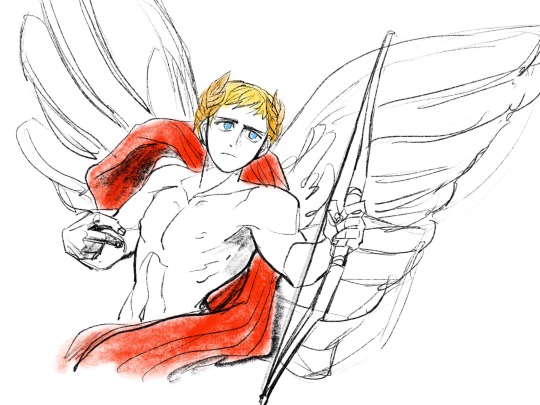
Amor Augustus
13 notes
·
View notes
Text


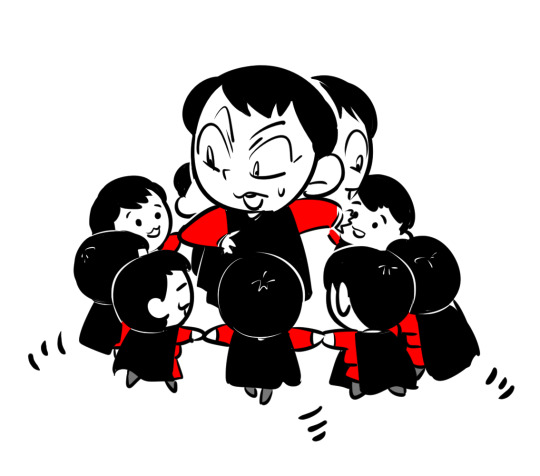
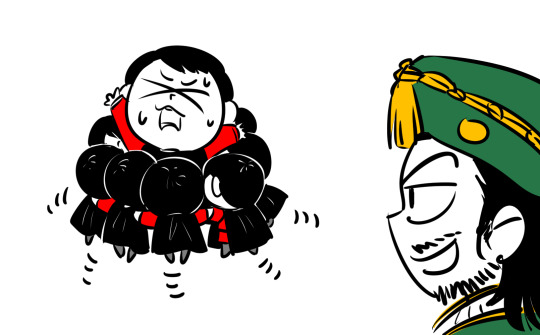
Miniccolos
24 notes
·
View notes
